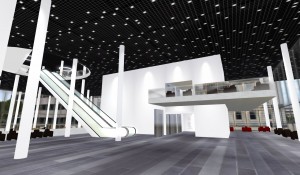 Nikolaus Münster is Head of Press and Public Relations at the City Council in Frankfurt/Main, Germany. I spoke to him about the city’s “Social Media Newsroom“, which gathers content from all of its social media channels and presents it on one website.
Nikolaus Münster is Head of Press and Public Relations at the City Council in Frankfurt/Main, Germany. I spoke to him about the city’s “Social Media Newsroom“, which gathers content from all of its social media channels and presents it on one website.
Nikolaus gained inspiration for the idea when he took part in a European exchange programme in 2009, completing a secondment at Birmingham City Council. That is where I met him and where he learned about Birmingham News Room. Apart from anything, I think this is a nice bit of European best practice exchange, which can often be hard to quantify. It’s also nice to see Frankfurt getting something in return for the Christmas Market that they send to Birmingham ever winter!
John Heaven (JH): What is a Social Media Newsroom?
Nikolaus Münster (NM): Our Social Media Newsroom brings together all of our social media channels on one website. The user can view this site to see news about the city on Twitter, Facebook, blogs, YouTube and other media at a glance.
We have been using these means of communication for a while now. Since 2009 we have been on Facebook, Twitter and Youtube. When we started we wanted to gain experience before actively publicising our social media presences. Now, social media are central to our communication strategy.
JH: What is the main aim of the Newsroom?
NM: The Newsroom representes an improvement in user experience. The most important point is that all channels are brought together on a single website, enabling users to get an overview of what is being put out by the city — whether on Facebook, Twitter, Youtube or other channels. This is more convenient for all users, not only those that aren’t Facebook or Twitter members.
JH: How does Frankfurt choose which tools to communicate with?
NM: Communications and PR always have to keep up with current developments in the way people communicate. Newspaper and email, for example, still play an important role. However, the channels that we currently use are simply the most important in terms of reaching large numbers of citizens. This may change in the future, so we keep an eye on new developments and must be open to trying new things. We are monitoring Google+, for example.
JH: Where did the idea for the Newsroom come from?
NM: It was Birmigham News Room that gave me the idea when I was in Birmingham. The idea of a social media newsroom was unheard of in Germany. At first it was difficult to describe the idea concretely and plausibly. However, following a conversation with a SAP-employee, we were able to define it more exactly. He advised on the technical realisation, which in our case is based on WordPress. I think it’s really important to have people in-house who have a thirst for innovation and who are able to put ideas into action.
JH: Is there a big difference between Frankfurt Social Media Newsroom and Birmingham News Room?
NM: The biggest difference is that we don’t have the Media Watch. That is something that we are looking into, because it would be nice to have all news relevant to the city displayed in a prominent place on the website, although our newsroom does display news from local newspapers.
JH: How do you keep track of social media use when any employee is able to set up a Twitter account of Facebook page? And how do you stop the resources required from spinning out of control?
NM: We tackle this problem with our social media guidelines, which state that only the Press Office is allowed to represent the city in an official capacity. But we have nothing against departments opening social media accounts for their particular target audience. That can make a lot of sense for services with specific audiences. Of course employees are free to use social media in a personal capacity.
Social media does require investment of extra resources, because it’s not just about broadcasting information over a different channel. Instead, you have to be prepared to innovate. This extra cost is hard to manage. We started using social media without investing extra resources, but soon we will have to think about taking on extra staff. On the one hand you have to make sure you don’t spend your whole time on social media, but if you choose to do so you have to take it seriously and actively look for opportunities to make use of them.
JH: Under what conditions would you advise other cities to open a social media newsroom?
NM: I would advise cities with established social media presences and audiences, and therefore experience with social media, to open a social media newsroom.
JH: Do social media offer advantages over conventional media – newspaper adverts, letters, flyers etc. – other than being inexpensive?
NM: Yes, of course. Social media can be very labour-intensive. You have to respond to critical comments that people may post about you because social media is all about dialogue. But we get lots of “Likes” and social media represent a very direct channel to our target audience. They are really good for our purposes.
JH: Do you know of any examples of innovative social media use by other directorates?
NM: Above all, museums and organisations with direct contact to the public. Examples that occur to me are: Städelmuseum, Kunsthalle Schirn, das Museum für Angewandte Kunst, das Museum für Moderne Kunst (MMK).
JH: What did you learn during your time in Birmingham? Does Birmingham communicate differently from Frankfurt?
NM: Birmingham invests a lot more in communication than Frankfurt does. They make a big effort to make their communication easy to understand and even produce some brochures with pictures and single sentences for people that can’t read so well as well as pamphlets for disabled people telling them about dangers that they should be aware of. Producing these materials is a painstaking process because they are tested on the target groups before being published.
JH: Would you advise others to take part in a similar exchange programme?
NM: Yes, definitely. I learnt a lot from colleagues during my time in Birmingham. While I was there I wrote an article every week for the staff intranet in Frankfurt to share my experience. There was a lot of interest from colleagues, with the articles receiving up to 1,000 views each. I really would recommend taking part in such a programme.
JH: Nikolaus, many thanks for taking the time to talk to me.
]]>
Manuel Kripp, MD of E-Voting.cc
Manuel Kripp, Managing Director of PEP-NET member E-Voting.cc, recently visited the US during the mid-term elections, so I was very curious to find out what he had got up to. We spoke about electronic voting machines, the role of social media in the US elections, and the need for change management when introducing E-Voting technology.
To find out what E-Voting.cc does, see their website or my previous interview with Manuel’s predecessor Robert Krimmer.
John Heaven: Hi Manuel. I hear you’ve been travelling recently. What were you up to?
Manuel Kripp: I was invited to participate in the 2010 U.S. election program organised by the International Foundation for Electoral Systems (IFES), and by the the Electoral Assistance Commission (EAC) to observe the election on Tuesday 2nd November.
The conference was well attended by experts from around the world, including Thomas Wilkie (Chief Executive, IFAS), Doug Chapin (Pew Centre on the States), and Bob Carey (Federal Voting Assistance Program). The Jo C. Baxter prize was presented to Dr Kwadwo Afari-Gyan, Chairman of Ghana’s Electoral Commission, for invaluable contributions to democracy in Ghana.
The focus of my visit was on seeing how elections are conducted in other countries from around the world, and comparing the US electoral system with how things are done in Europe.
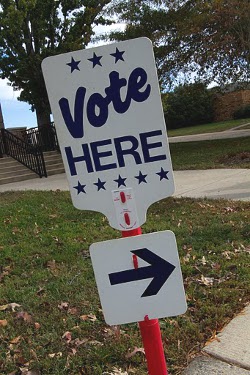
Photo courtesy Ripple Effect Productions/IFES
US electoral system
JH: So what is different about the US electoral system?
MK: Firstly, there isn’t a “US electoral system” as such: even within States there are large variations because the Counties have wide-ranging autonomy to set electoral rules and opening times, and – interestingly from an E-Voting perspective – procure the voting machines. On the latter point, the EAC certifies voting machines based on centrally determined guidelines; but even these are voluntary. So one of the Counties I was in, Arlington, used EAC non-certified voting machines.
JH: Can US citizens vote on the internet?
MK: Not over the internet – in fact the reason that voting machines in Arlington don’t meet the standards required for verification by the EAC is that they are synchronised using a wireless LAN connection before the election starts. But voters use electronic voting machines even when they choose to cast a paper vote. Before it is dropped into the ballot box, the ballot paper is scanned and stored electronically. The advantage of this is that you get much quicker and more reliable results. Because paper ballot papers exist, you can verify the result if something goes wrong. They also have the option to use a touchscreen machine, which I tested out and found to be very convenient.
Specifically on the subject of Internet voting, there have been around seven tests and pilots of Internet voting during this midterm election.
JH: Are there other advantages of using electronic voting machines?
Philippine Case Study
MK: For accessibility reasons, they can have advantages – such as magnifying the ballot paper, or reading it out. But one really impressive example that I found out about was in the Philippines. There they adopted the optical scanner practically overnight. They told me that in the previous election, a small number of election officials were shot dead in attempts to manipulate the result. This time, no-one was shot because – although election officials were still threatened – the automatic counting means there is no prospect of affecting the outcome.
This case study was interesting for other reasons too. I always say that change management is an increasingly important part of introducing E-Voting, and they really took that to heart.
Change Management and E-Voting
JH: Change management? If change management is the answer, does that mean that the only barrier to introducing E-Voting is public fear and resistance to change?
MK: Not quite. E-Voting technology always has room for improvement in terms of security, but we are at a point where we’ve got something we can work with. So yes, an important barrier to E-Voting is public anxiety and resistance to change.
There are two aspects to this change management: firstly, election organisers need to change the way they organise and communicate the election; secondly, trust-building measures are necessary.
On the first point, election organisers need to communicate openly and honestly about what the technology can do, and what its limitations are. Instead of waiting to get caught and then owning up, they should be clear from the outset about the vulnerabilities.
On the second point, by trust-building measures I mean engaging widely with the media, electorate, hackers, and political parties. Transparent source code (which is not the same as open source) means that the “many eyes” principle can help to iron out faults and protect against security breaches. Engaging with the media is a very important aspect too.
JH: What would you suggest?
MK: Coming back to the Philippines example: there they adopted a very business-like approach, setting themselves targets for return on investment and were very clear about what they wanted from their media campaign. They used channels that are already popular with the youth: a girl-band that won the Philippine equivalent of Popstars [a bit like the UK’s Pol Idol] sang a song that described how to vote, accompanied by a dance that acted out the voting process. A Strictly Come Dancing episode saw celebrities and the public attempting to mimic the dance, judged by a juror from the Electoral Commission. Finally, there was an episode of a popular soap themed around voting, with a cameo appearance from an electoral commissioner. Inspired stuff, and a brilliant example of how it should be done!
US Election Campaigns
JH: When you were in the US, were you able to get a feeling for the differences between European election campaigns and those in US?
MK: Yes, I noticed that the campaigns are far more personal and aggressive. For example, in one election advert I saw, a single candidate was accused of being responsible for the loss of 40,000 jobs in the area. There seems to be much more of a focus on candidates rather than parties, so the party takes more of a back seat. The parties also seem much less uniform, so they are different across states. The Tea Party tried to introduce a corporate image, but the older parties vary a lot more.
Role of Social Media in US Election Campaigns
JH: And what about the role of social media. Was it as important as in the 2008 presidential election?
MK: No, there wasn’t the same kind of mobilisation – at least in a party-political sense. However, the large rally organised by the Tea Party, and the satirical demonstration that Stephen Colbert and Jon Stewart organised, were unprecedented and people I spoke to said that they hadn’t seen anything on this scale apart from rallies in memory of Martin Luther King. So there was a feeling that something unusual was happening, and that could have been due to use of social media like Facebook and Twitter which are very widespread over there.
In general, I noticed a big difference in civil society. Everyone seems to be involved in some voluntary activity or the other. This isn’t necessarily party political, but often spills over into local politics – for example, a campaign to keep a school that is under threat of being closed.
In terms of electoral process, there is a big emphasis on bipartisanship. So electoral commissions have to include representatives from the Democratic and Republican parties, and even where someone asks for assistance in casting their vote, they have to be helped by a Republican and a Democrat.
JH: Thanks for your time, that was really interesting!
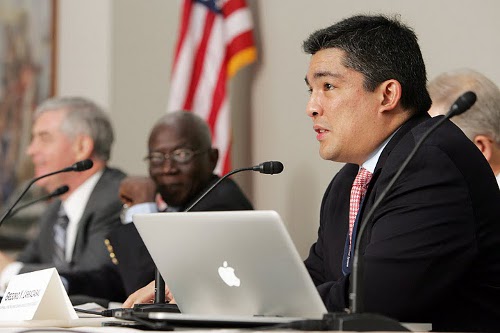
At the IFES Election Program, Photo courtesy Ripple Effect Productions/IFES
It’s easy to reject Second Life as an eParticipation platform, but Birmingham City Council is just about to launch a virtual model of the planned £193m Library of Birmingham. I spoke to representatives of the Council and the company that they are working with to find out what they are doing, and how they are making the virtual library accessible to a wide audience. What I found was fascinating, and I really think Second Life deserves a second look.
Second Life is a virtual world that allows users to assume a second identity and explore a digital three-dimensional world. It’s not difficult to see how this could be used to enable people to “go” to places they wouldn’t otherwise visit, network with people from far away, or take part in virtual events. That’s the theory; but my big issue with Second Life is that it is a very niche audience and it takes quite a lot of effort to download the software and work out how to use it. Once you’re in there, it’s great to be able to look at these virtual buildings and access information; but I can view videos, read text, and chat to friends much more easily using the internet outside Second Life. So why would a city council be interested in Second Life?
Digital Birmingham, Birmingham Library service and Daden Limited (a local digital media virtual world company) have been building a virtual model of the new Library of Birmingham in Second Life. Work on the physical library started this year, but it will not be finished until 2013. In the meantime, the virtual model will show staff and citizens what the library will look like when it is finished and allow them to give their views on how the inside should look and be used. They are also exploring the possibility of providing library services to those who cannot attend in person.
For me, the breakthrough is how Birmingham is making an effort to take the virtual library to Birmingham’s citizens so that it doesn’t just sit on a server without anybody noticing. As Simon Whitehouse from Digital Birmingham said:
“In virtual reality environments, people don’t stumble across things on the way to the shops and say ‘ooh, there’s the library – I think I’ll have a look.’ You have to let them know it is there.”
The council is doing this in several ways. Firstly, staff are going to Birmingham’s 40 community libraries and to schools, showing the virtual model using laptops and projectors. Of course people will then be able to go and explore it themselves online, and even show it to their families and friends. Public computers within the libraries have been given access to Second Life to allow the public to do this when the virtual Library of Birmingham is launched.
Secondly, as Daden’s Soulla Stylianou told me:
“We are making every effort to ensure people can access the model right in their browser, without having to use Second Life software, for example by taking video extracts that can be posted on a conventional website. The blogging community has reported that Linden Lab‘s rumoured ‘Project Skylight’ viewer allows Second Life access through a browser, which we will try to make use of.”
As staff from the Library service have found, the possibilities are endless, including giving guided tours, holding events in the virtual library, offering services to people who have mobility problems… even taking a guided tour whilst sitting on a book! There are plans to use the model long after the physical Library of Birmingham is complete, possibly for new ways of accessing and visualising information.
David Burden, Daden’s Managing Director, said:
“We think that one of the keys to the library build is the way in which it can be used for a wide variety of tasks – from discussions about layout, through staff training to the delivery of real services. This multi-functional aspect gives people far more reasons to engage with the build, and makes for a far more cost-effective project.”
At the recent Beyond 2010 Conference and Hello Business events in Birmingham, Neelie Kroes (Vice President of the European Commission and Digital Agenda Commissioner), Birmingham’s Lord Mayor and conference delegates were offered a sneak preview of the virtual library and – as Daden and Digital Birmingham assure me – the reception was very positive.
So, contrary to my initial scepticism, I would give Second Life a second chance and I think that other local authorities should be watching closely when the virtual Library of Birmingham is launched.
]]>
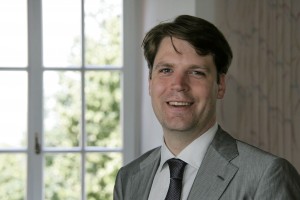
Photo of Robert Krimmer
When Britons went to vote in the General Election on 6th May, some of them were locked out of the polling booths and were not able to cast their votes. An article on the PublicTechnology website suggested that eVoting could be the answer to this problem, and should be given another chance.
I spoke to Robert Krimmer – Director and Founder of the Competence Center for Electronic Voting in Austria and a founding member of PEP-NET – to find out whether he agreed.
John Heaven: Hi Robert. What is E-Voting.cc, and what do you mean by eVoting?
Robert Krimmer: E-Voting.cc is an Austrian Non-Governmental Organisation (NGO) that fosters the development of eVoting. We deal with any type of eVoting – whether electronic machines in polling booths, internet voting, voting through cash machines, mobile phone voting. The important thing is that the act of casting a vote is done electronically.
JH: So does that include the punch-card system that is used in the United States?
RK: No, that is not included because the votes are counted electronically but not cast electronically. We use the Council of Europe’s definition of eVoting.
JH: You have heard about the problems that UK voters had last week: there were complaints about voters queuing for hours only to be turned away at 10pm. Could eVoting have solved this problem, as discussed in a recent PublicTechnology article?
RK: No. eVoting cannot solve non-technical problems, but should be seen as part of a wider picture. The UK voting system has a number of specific issues: weak identification because you don’t need to show photo ID to vote; self-registration rather than automatic registration, which can be a problem when people move house and affect data quality; non-anonymous voting (because in theory it is possible to find out who somebody voted for due to a number on their ballot paper).
In some cases, eVoting could have made the problem worse: the problem in the UK was lack of capacity to accommodate the number of people voting; using voting machines can take longer than the old-fashioned system of stuffing a piece of paper into a box.
The UK has lots of issues it needs to discuss about the electoral system generally, for example its attitude to coalition governments, which are accepted in the rest of Europe, and the so-called “fairness” of its voting system. eVoting should be part of that wider discussion because it needs to be part of an electoral system that is seen as fair.
Having said that, the eVoting readiness survey found that the UK would be a good place for eVoting to be introduced precisely because it has high public confidence in its voting sytem. It came first, above places like Switzerland, Russia and Venezuela.
JH: Where does eVoting fit in to eDemocracy?
RK: I see eVoting as just one – very important – part of eDemocracy. The second is eParticipation, which for me is a modern version of the Greek Agora: public deliberation, discussion and afterwards you have it followed by a vote. Without a reliable voting system, the agora is meaningless. If we are to have modern methods of deliberation, people will expect to have modern ways of voting too. Both together will lead to a new form of democracy.
JH: Apart from that, what are the concrete advantages of eVoting?
RK: It is easier for disabled people to vote electronically. You can increase the size of text on the screen on a voting machine, and can even have a system that uses audio to enable blind people to vote. For people with mobility problems, voting on the internet means they don’t have to leave the house. Votes are counted more quickly and accurately. And yes, it is easier to accommodate larger number of voters with internet voting.
JH: I heard that Estonia introduced eVoting in 2005, and the Austrian Students’ Federation conducted the first legally-binding election using eVoting recently. What is important for a successful eVoting exercise?
RK: You have to get the technology right and have the important stakeholders on board. It is crucial for the voters to have confidence in the system. As with any election, you have to get the basics right, such as anonymity.
People need to see eVoting as a welcome addition to the voting system and have confidence and trust in it.
JH: You just spoke about trustworthiness. Isn’t that a big problem with eVoting?
RK: Paper voting is more tangible because you can hold the paper ballot in your hand, and physically demonstrate that the system cannot be tampered with. People are more likely to trust that kind of system. With eVoting, you cannot hold the ballot paper in your hand.
Further, electronic systems are very complex. They use the kind of maths you learn at university, whereas paper-based systems use the maths you learn at high school.
JH: So are people right not to trust eVoting?
RK: As I said earlier, it has to be introduced into a trusted environment and cannot fix a broken voting system. It is important to offer people a choice between electronic and paper voting.
Let me explain the security issue with an analogy: it’s a bit like the risk of getting into a car versus getting into a plane. If something goes wrong with a car, the results are not necessarily disastrous. If something goes wrong with a plane most of the times everybody dies, but this is much less likely than something going wrong with a car because of the care that is taken to avoid errors.
Likewise, it’s easier to manipulate a paper voting system but the consequences are less catastrophic. To hack an online system, you need lots of expertise and insider knowledge, but you are then more able to sabotage the whole election. Whether you use paper based or electronic voting, you will always have these problems.
JH: I recently heard a discussion that raised the issue of the depth of eParticipation. If people can participate much more easily and without thinking, does this devalue eParticipation? Does eVoting make votes worthless?
RK: We should make voting as attractive as possible, and people should be able to use the easiest option for them.
People who travel a lot (like me) may have difficulty voting, but the internet makes it possible. Some people find voting on the internet is very difficult but it is much easier for them to go around the corner to a polling station because they are always at home.
I agree that people need to take voting seriously enough that they are “returning customers” who don’t vote on something once and never take an interest again. Perhaps eVoting shouldn’t be as easy as clicking “Like” on Facebook, but that is an easy problem to solve. For example, you can introduce smart cards that people need to vote.
So in short: no, this is not a problem that we need to worry about.
JH: Finally, what is the future of eVoting. Will there always be doubts about its security, or will it get better?
RK: There will always be problems, but that applies to any voting system. However, we will overcome these issues because we have to: we will need eVoting in the future whether we like it or not because voting needs to keep up with the rest of eParticipation.
eVoting is the logical next step in the electronic revolution on the way to a modern democracy!
JH: That was a really interesting chat. Many thanks for your time!
RK: You’re welcome. Don’t forget to register for the 4th International E-Voting Conference from 21st to 24th July!
]]>I spoke to Chuck Hirt, from the Central and Eastern European Citizens’ Network (CEECN, a member of PEP-NET) about eParticipation in Central and Eastern Europe. Chuck says that eParticipation along Western European lines is “science fiction” in C&E Europe. On the other hand, people who visit the region are often “inspired by the spirit, energy and enthusiasm” there.
John Heaven: Hi Chuck. Please tell me a bit about CEECN.
Chuck Hirt: The Central and Eastern European Citizens Network gives grass-roots citizens organisations the opportunity to work together, share ideas, and enhance their organisational growth. It started by bringing together staff and citizens from a few organisations across Central and Eastern Europe, who found the meetings really helpful – if anything, just to gain inspiration and energy to take home and continue the struggle.
We found out that several of us were funded by a US donor organisation, the Charles Stewart Mott foundation. They said they would be happy to promote this activity, but asked that we included organisations from further away in the east. We were happy to do this, and our members now come from 19 different countries.
The network is going strong, and we are celebrating our tenth anniversary this year. We are just making preparations for a Citizens’ Participation University. At the moment we are doing some research into the state of participation to act as a base line.
JH: What is the key to the network’s success?
CH: The network was a good place for exchanging stories and experience, putting on training from the start and particularly running a conference every two years. But things started taking off as we began to find way to become proactive and institute events like “Citizen Participation Week”. This was a lot of hard work but gave us a focus. This was quite an exciting moment.
JH: What achievements does CEECN have to its name?
CH: Our first major success was our joining a struggle against a gas station in my local town. At first, we couldn’t even find out who was behind it because the local government didn’t think it needed to tell us – that’s an illustration of the culture here. We found out later that Shell was behind it, so we organised a meeting with the Head of Shell in Slovakia and citizens. He came and promised to take their concerns seriously. Unfortunately, he then ignored us so we prepared a number of actions including a Shell boycott.
When we mentioned this to other members of CEECN, they joined the boycott and helped us campaign. We first realised it was working when the head of Shell in Romania phoned up our Romanian partner. Several months later they scrapped the plan.
This was a real inspiration – we realised how much we could achieve by being proactive. A year later, we decided to start a Citizens’ Participation Week. Each country holds several events during the week each year. Hungary (thanks to Máte’s leadership) holds over 200!
When that started, a real shift happened.
JH: You haven’t mentioned eParticipation yet.
CH: Correct! We focus on participation, and the “e” part just helps us get the job done. We are looking to do more work in this area though. More citizens are starting to step into the void left by government because they can make use of online tools themselves. And we are starting to look at how we can prepare citizens to be able to use the web if, and when, governments start taking citizen participation seriously.
JH: How much can CECN learn from Europe, and vice versa?
CH: There is a lot that can be learned from the rest of Europe, but the setting is very different. There is a lot that we can do to help and learn from each other. For example, when we mentioned Citizens’ Participation Week to PEP-NET members, several of them offered to help straight away.
But on the ladder of participation – a really useful framework, by the way – Central and Eastern Europe is only on the first two rungs; the rest of Europe is further up.
JH: You’re originally from the US. Does the same apply to learning from the US?
CH: Lots of organisations in Central and Eastern Europe are financed by the US. There has been a significant American influence during the transition. The same can’t be said for the older part of the EU. So in that sense, a transfer is taking place. We have had meetings with people from the US. The US can provide lots of inspiration, but it is a matter of working out exactly how to apply it here.
In one sense, Western Europe and the US are more similar in the development and maturity of democracy and participation. Central and Eastern Europe is at a different stage.
But Central and Eastern Europe does have advantages that other countries are envious of. We don’t have to undo things before putting new participation measures in place. For example, I was talking to the City Manager from Charleston in the US this week as he was visiting our city here. He said that existing neighbourhood groups, and the “usual suspects” that are represented on them, are sometimes a barrier to change. We don’t have these groups at all. In some ways it is easier to try new ideas. People from other EU countries have commented that they are inspired by the spirit, energy and enthusiasm in the CEE region.
Also, the US and Western Europe are not always the sacred territory that they appear – they have community centres and money etc. but scratch beneath the surface and you often find that they have their problems too.
So yes, there’s some good stuff in the US but sometimes difficult to make it work in a different setting.
JH: The current discussion on eParticipation is often around the transformation from eGov to WeGov – moving from doing old government electronically to allowing citizens to be directly involved in governing. Is this relevant for Central and Eastern Europe?
CH: There is some interest in this, and there are some exceptions where this exists here too. But generally, there is no impetus from either side: neither from politicians, nor from citizens. Citizens still don’t understand that they are allowed to get on and really participate.
We don’t have the infrastructure here. In other places, you have community centres that make the tools available, and offer training. You still have that here – our city put wifi in the city centre. I used that once or twice, but not many people walk around with wifi devices here. Mostly the younger generation do.
I saw a really impressive project in Venice, where the city put on a training facility, showing people how to use the internet, promoting citizens’ use of it, and involving citizens in the budget. This stuff is “science fiction” to us. I don’t want to romanticise the situation in Western Europe, but there’s a significant difference between the situation here and in the rest of Europe.
As I said earlier, Central and Eastern Europe is just not as far up the ladder of participation
JH: Where do you see Participation in the next 20 years?
CH: Things are changing and there’s an awareness that citizens are important, and that there will be a big problem for administrations that don’t take this on board by operating transparently. It is difficult to get this on the agenda and even more difficult to get the funding to lay the groundwork.
I’m a cautious optimist: things are getting better, but it’s slow, hard work. There are some special cases – because CECN’s reach is wider than PEP-NET’s (i.e. beyond EU) there are countries such as Belarus where oppressive regimes mean that the environment is different – but we are moving in the right direction and there is no going back.
I find it exciting when people raise issues like “WeGov”, and am glad that these questions are being asked.
JH: Chuck, thanks for your time!
]]>
Dominic's Twitter profile pic
Dominic Campbell, Director and founder of British consultancy FutureGov, has taken time off from his day job to volunteer for the Labour party election campaign. Dominic kindly found the time between meetings with the likes of Gordon Brown and Ed Miliband for me to interview him about government, what can be learned from the US, and his role in the Labour Party election campaign.
Dominic’s comments relating to the Labour Party are made in a personal capacity and not as director of FutureGov.
John Heaven: Hi Dominic. Many thanks for your time today – I know you must be very busy with only three days to go until the general election. First question: Why did you found FutureGov?
Dominic Campbell: I first became involved in local government as a graduate trainee at Barnet Council. Within four years, I was heading a department. Despite being promoted so quickly, I didn’t have the influence that I had expected. In order to change things for the better, I decided I needed to influence the whole sector instead of being dependent on one manager or one council leader.
JH: What is it about local government that fascinates you?
DC: Funnily enough, I was asked the other day which part of government I’d most like to work in. My answer was unequivocally “local government”: it’s the most diverse, interesting and closest to people. It has a different culture from central government, and the right people at the right time really can be agile and make change without asking for permission. I don’t have time for council leaders who say that government isn’t decentralised enough that they don’t have autonomy to do stuff without asking.
JH: I noticed your work with Harvard University for FutureGov on “eGov” and “WeGov”. What is that all about?
DC: eGov – eGovernment – is top-down and centralised. It’s about maintaining the old way of doing government but doing it more efficiently by adding a layer of IT over old bureaucracy. eGov is expensive, and you have no autonomy as a human being to change things and make them work better. It has gone as far as it can: we’ve had web forms, SAP systems and the like. eGovernment has made government better, but now we’re moving onto the next stage, which is WeGov.
WeGov is about harnessing web 2.0, and promoting social innovation to change the way government works and redesign services. It’s about saying “people are getting on and doing things without us. How can we make the most of what they’re doing?”
Don’t get me wrong: I’m not one of those people who says eGovernment is rubbish and web 2.0 is the only way. eGovernment served a purpose, and it is now evolving to the next stage.
JH: What can the UK learn from the US and vice versa?
DC: The UK led on eGovernment for a while. Many ideas originated in the UK: for example, the Power of Information taskforce, which laid the foundations for open government.
But although we had the ideas, we didn’t have the political drive. Barack Obama pushed these ideas through and that has now given the UK permission to follow. This has been reflected by Gordon Brown inviting Tim Berners-Lee to advise him on opening up government.
The US is good at, and more interested in, inside-out change: they can turn around shiny new websites, and have struck deals with partners – for example Google. They have a collection of New Media Directors, who have a weekly conference call. So there’s a very powerful and co-ordinated group of people dedicated to new media.
The US has the money and focus, but crucially they also accept that culture change is necessary. This is a big struggle in the UK.
On the other hand, in the UK we’re good at just getting on and doing stuff. We are entrepreneurial and good at getting things started. The Department for Business, Innovation and Skills is really helpful.
The UK is leading the US on social innovation, e.g. Enabled by Design (which FutureGov supports) and School of Everything. These and other organisations take chunks of government and imagine them in a completely different way. The School of Everything has redesigned adult education on a peer-to-peer model.
With my party-political hat on, this is an example of how, under Labour, government can shrink in a more managed way than it would under the Conservatives.
JH: That brings us neatly onto your role as an election campaigner. Why did you get involved in politics? What do you feel you can influence through politics that you can’t change through your work with FutureGov?
DC: I had never been active in party politics before, but I agree with the core values of the party. I felt frustrated because Labour needed some help getting their message out. They were allowing other parties to dominate, and needed help to connect better.
JH: How can politicians “connect”?
DC: Many people assume that politicians don’t want to connect. This is completely untrue, but politicians need the capacity to connect. I was accompanying Gordon Brown the other day and he visited 10 places in 7 hours. I can help by giving him extra capacity to connect using social media.
JH: How is the Labour campaign designed, and was it influenced by the US experience?
DC: We have put something together that nicely matches the US philosophy of community building, but this is also something that fits neatly with the Labour tradition of bringing people together to change things. The Conservatives have generally taken the PR and marketing route – for example using Google AdWords – but Labour is relying on word of mouth in the Labour movement’s tradition of collective action.
JH: We’ve talked a bit about what can be learned from the US. Is there much that the UK can learn from Europe?
DC: Europe isn’t on the radar as much as it should be. I’ve been trying to connect with Europe more for a while now. At the Personal Democracy Forum conference in November, there were a couple of interesting things – for example mapping political influence – but by and large Europe doesn’t feel very energetic. I felt that the European understanding of the role of technology in government was more about conventional PR, not about service redesign.
Continental Europe is more wedded to the EU than the UK – other European countries look to Europe to deliver massive eGovernment funds. David Osimo is doing good work in shifting the focus to smaller, interesting gov 2.0 things.
JH: Thanks very much for your time – I’ll let you get on with the campaigning now, as I know you’re very busy!
]]> Steve Ressler works as an information technology specialist at the US Immigration and Customs Enforcement.
Steve Ressler works as an information technology specialist at the US Immigration and Customs Enforcement.
In 2008 Steve founded GovLoop.com – currently the most successful social network for civil servants and people interested in public administrations.
PEP-NET: Steve, can you explain in a few sentences what Govloop is all about?
Steve Ressler: GovLoop is the “Facebook for Government” – a social network connecting almost 30,000 public sector innovators to share best practices and ideas to improve government. Membership is free and check it out at govloop.com.
PEP-NET: How did you manage to make the network that popular?
Steve Ressler: I never imagined it would be 30,000 members when it started. I think it became popular for a few reasons:
- It serves a need that isn’t been met. The need to collaborate among gov’t peers. And when people saw it they told their friends.
- We always have fun and be authentic.
- We continue to listen to the community every day and make changes to meet their needs.
- One of the benefits of the GovLoop platform is that public administrations worldwide can exchange best practices.
PEP-NET: Has the GovLoop model itself been adopted elsewhere?
Steve Ressler: GovLoop has a pretty active international presence on GovLoop itself from
countries like Canada to New Zealand. Additionally, the GovLoop model has been replicated in numerous countries including Australia, Netherlands, Brazil, and Israel.
PEP-NET: Are there particular countries amongst which international collaboration and replication are easier, e.g. Commonwealth countries?
Steve Ressler: On GovLoop itself, we have better luck fostering collaboration amongst English-speaking countries as we have not enabled perfect translation. In general, I think social network and collaboration works better in countries where individuals feel the ability to step out and share your ideas.
PEP-NET: Was/is there resistance to GovLoop and how have you/do you overcome it?
Steve Ressler: The major pushback I get on GovLoop is “I already have too many social networks” and “I don’t think social media is valuable.” Honestly, this comes mainly from people who have never been to the site and this opinion reverses when I actually show people what they are doing and show them a number of conversations going on work-related. I think people are still grappling with social media and managing multiple demands. But if a site like GovLoop makes your job easier and better, that’s usually all they need.
PEP-NET: GovLoop thrives on collaboration, as opposed to competition. Is there still room for competitiveness? Is there still a place for benchmarking?
Steve Ressler: There is always room for friendly competitiveness. On GovLoop, we have a top 100 rankings leaderboard for our most active members and there is a lot of competition to make that list. Additionally, we have a number of contests which encourage individuals to share and highlight great practices.
PEP-NET: Thanks a lot for taking the time for this interview and all the best for GovLoop!
]]>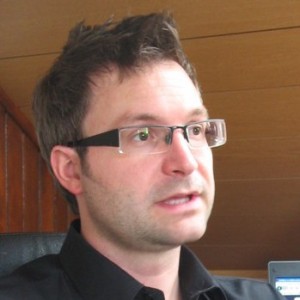
Photo of Simon Delakorda
Simon Delakorda, founder and Managing Director of the Institute for Electronic Participation (INePA) in Ljubljana, Slovenia, will participate in a live chat on Wednesday 21st April from 10.30-11-30 CET.
This is the third in our series of Live Chats as part of the PEP-NET Online Discourse on eParticipation in Central and Eastern Europe.
Simon is a full-time eDemocracy/eParticipation practitioner and researcher. InEPa is a PEP-NET member and a regular contributor to the PEP-NET blog.
To take part in the chat, simply go to the news item on the internet-discourse.eu website. Within that article you will see a window, which will allow you to participate in the chat when it starts. (If you go to the page before the chat starts, you will see a window where you can enter your email address for a reminder to be sent.)
You can continue to participate in the general discussion on eParticipation in Central and Eastern Europe at all times until this Friday (23rd April) by registering on the site and posting comments in the forum. The results of the discourse will be presented to the European Commission as a situation paper.
]]>Die von PEP-NET initiierte und moderierte Diskussion wird in mehreren Phasen verlaufen: Zunächst identifizieren die Teilnehmer aktuelle Themen. Anschließend dürfen die Teilnehmer in Live-Chats prominente Gäste aus der ePartizipation-Szene befragen. Wir freuen uns auf spannende Dialoge!
Marko Rakar ist ein kroatischer Blog-Autor, der mit seiner Seite pollitika.com den eDemocracy Award 2009 gewann und neuerdings mediales Aufsehen erregte, da er eine Namensliste von Kriegsveteranen veröffentlichte. Am Freitag, 16. April 2010, 10:30-11.00 Uhr steht er uns Rede und Antwort.
Hille Hinsberg wird als Communications Officer des Estonian Cabinet Office am Montag, 19. April 2010, ab 16 Uhr im Live-Chat auftreten. Sie ist für das mit dem eGovernment Award 2009 ausgezeichnete estländische Portal osale.ee verantwortlich, auf dem Gesetzesvorhaben bekannt gegeben werden und die Möglichkeit besteht, eine Meinungsäußerung abzugeben. Hille Hinsberg engagiert sich in der Förderung des Dialogs zwischen Bürgern und der Regierung und kann über einige erfolgreiche Beispiele berichten. Ihre berufliche Karriere ist bunt: Erfahrungen im Projektmanagement von EU-Projekten und Sprecherin der estischen Integrations-Stiftung sowie Beratung im Bereich eParticipation schmücken ihren Lebenslauf.
Simon Delakorda, der Managing Director des PEP-NET Mitglieds Institute for Electronic Participation (INePA)(Ljubljana, Slovenien) beschäftigt sich vornehmlich wissenschaftlich und anwendungsbezogen mit den Themen eDemocracy/eParticipation. Am Mittwoch, 21. April 2010 berichtet er und steht für Fragen zur Verfügung.
Der Abschlussbericht ist, wie auch die Diskussion, Bestandteil des EU-Projekts PEP-NET und wird der Europäischen Kommission vorgestellt.
Zögern Sie nicht und partizipieren Sie an der Online-Diskussion.
]]>
